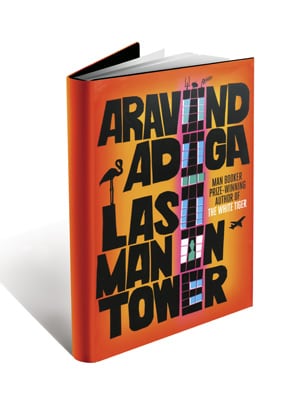
Book Review : Last Man in Tower
A story that can be described as sort of The Last Samurai meets Avatar, minus the muscleplay
Disclaimer: I have never lived in Mumbai, so I can’t tell how good or bad a Bombay/Mumbai novel this is. That’s not necessarily a negative: All too often, the city novel carries the burden of hundreds of years of heritage and perception, enough to bog down the best book. That said, it’s hard to see Last Man in Tower set in any other real-world city (except, maybe, New York, and that’s venturing into Paul Auster territory): Where else but on an island can floor space index be the fulcrum for fiction?
So that’s the story, a sort of The Last Samurai-meets-Avatar, minus the muscleplay, plus the macabre. The last man standing here is Masterji, Yogesh A. Murthy (though only 61, he is consistently referred to as ‘old’), who refuses to sign on the dotted line when a builder appears, waving megabucks and wanting Masterji and his neighbours out of their crumbling housing society. Redevelopment is the buzzword in town, and unfashionable Vakola is where the action is projected to be.
The lines are drawn with black-and-white ferocity and there’s little space for grey. A hint of this is perhaps available in the neat ‘Plan of Vishram Society (Tower A), Vakola’ appended to the novel: Every family and the ‘regulars’ (the kachdawali and the security guard) accounted for. The constituents are mostly Hindu, with a couple of Christians — a Communist among them — and a token Muslim; and, what do you know, their daily evening meetings are known as parliament. Allegory, did you say?
Strangely enough, for all the care with which Adiga lays out his cast, he bothers to fill in back-stories for only a few. There’s Georgina Rego, engaged in an epistolary trump game with her sister in the hip suburb of Bandra; Albert Pinto, retired accountant and his near-blind wife Shelley; Ramesh Ajwani, real-estate broker with a secret room off his office; Mrs Puri and her Down’s syndrome-afflicted 18-year-old son Ramu; Ibrahim Kudwa, who’s still trying to run an Internet café; and Ashvin Kothari, society secretary, occupation unknown. The rest remains tantalising outlines.
For all the high twee factor and the dearth of any real characters — let alone character development (Masterji is the sole exception) — Last Man still makes a compelling read in the manner of horror page-turners. There are graphic descriptions of animals, birds, even insects in agony; disease and decay abound among the people, however incidental. This is Adiga’s Mumbai: An open wound scabbed over by bright lights, but one only needs to scratch the surface to expose the rot. The blackness, in this world, has no redemption.
Last Man in Tower
By: Arvind Adiga
Publisher: HarperCollins
Price: Rs. 699; Pages: 421
(This story appears in the 30 November, -0001 issue of Forbes India. To visit our Archives, click here.)





